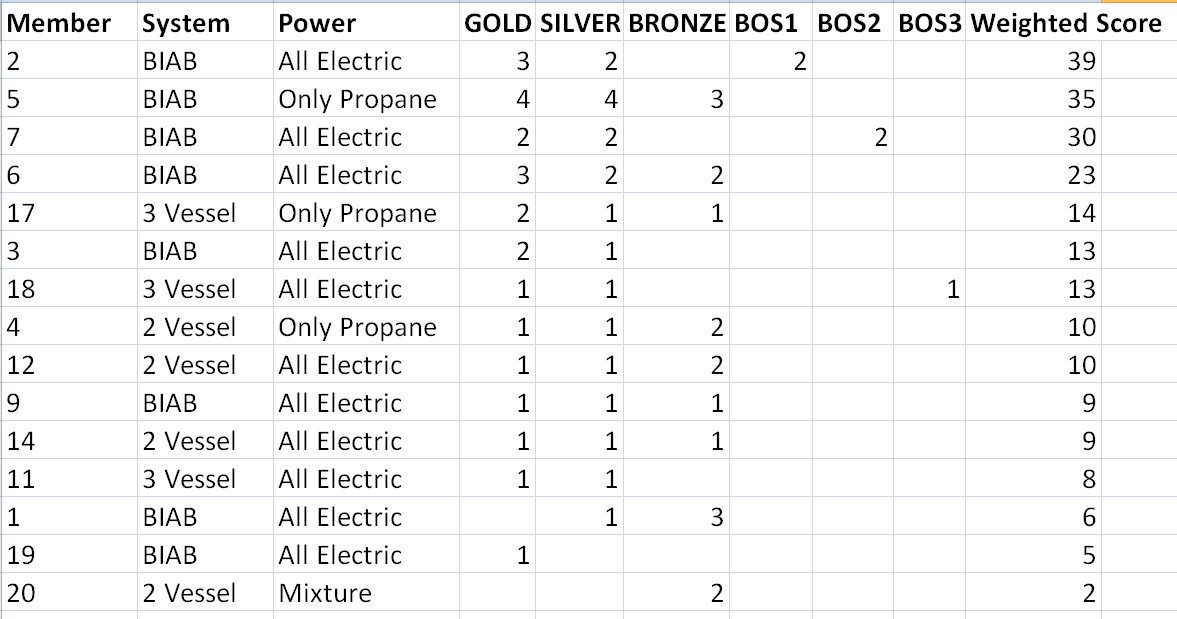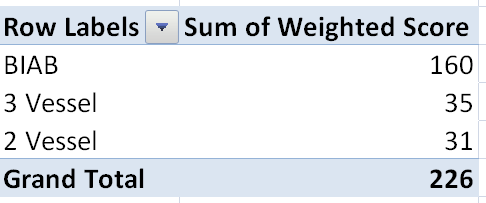JoeSpartaNJ
Well-Known Member
The point has been made that "it depends" or "it depends on your goals". Sure, that's exactly what it is. Attention to one of 100 possible details in any given process (such as brewing) will only incrementally improve the outcome. What happens is that each individual brewer will pick a few (out of 100) to care about and once they make beer they are happy with, all the other possible ones are a complete waste of time so stop telling me I'm wrong. No one really has the time or endurance to explore every option.
What I can say with confidence is that the best brewers I know all brew with RO water and care very much about their mineral profile and mash pH. Aside from my personal opinion about who a good brewer is, here's more data. The people in the GSHB club below all use RO. I don't know about the other two.
View attachment 807644
On the other hand, you might see this and conclude that water is extremely important because the biggest winners care about it. Well, it's just one of 100 things. To brew at this level, I can tell you they care about a LOT more than the water.
I didn't realize this would cause such a debate.
I kind of did a reset. Went back to all my original methods on my oatmeal stout. Used tap water, 60 minute boil times (had done 30 or less for the last few years), did a mash out for 10 minutes. I guess we will see how it goes. Worst case scenario, I'm out $30 and 5 hours of my time.
As for competition, I have only entered a few (only out of peer pressure from from my club, and did ok.) We enter beers we do as a group, and do fairly well usually.
BTW......Larry Bentley wins everything.








![Craft A Brew - Safale S-04 Dry Yeast - Fermentis - English Ale Dry Yeast - For English and American Ales and Hard Apple Ciders - Ingredients for Home Brewing - Beer Making Supplies - [1 Pack]](https://m.media-amazon.com/images/I/41fVGNh6JfL._SL500_.jpg)






















































